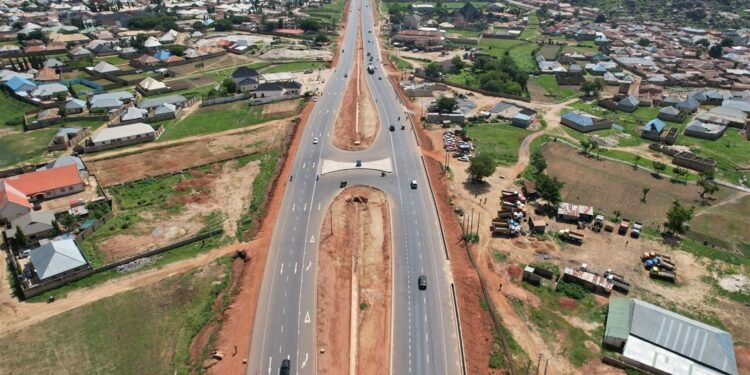The Federal Ministry of Works has ordered construction company Julius Berger to withdraw from the Abuja-Kaduna-Zaria-Kano Dual Carriageway rehabilitation project, specifically Section One of the route. This directive follows a 14-day termination notice issued on Monday, which dismisses further negotiations.
According to a statement by the Ministry’s Director of Press and Public Relations, Mohammed Ahmed, the termination is due to non-compliance with revised project terms, cessation of work, and failure to remobilize to the site despite repeated instructions.
Efforts to negotiate with Julius Berger over several months had not led to significant progress, as the ministry confirmed in its management meeting. The ministry has been in talks with the company for over a year, attempting to resolve the impasse. However, the construction company was absent from a scheduled meeting with the ministry on Monday.
The project, awarded to Julius Berger in December 2017 and initiated in 2018 under former President Muhammadu Buhari, has experienced multiple revisions and delays. While the Kaduna-Zaria and Zaria-Kano sections are mostly completed, the Abuja-Kaduna section has shown only 27 percent progress after six years.
At a recent event, Minister of Works David Umahi accused Julius Berger of using the project as a political tool. Despite these concerns, the ministry continued with the contractor, even redesigning portions of the route for improved durability. Under this new design, 38 kilometers of the highway will be rebuilt with concrete pavement by Dangote Industries, while the remaining 127 kilometers were assigned to Julius Berger, with a planned completion date of early 2025.
Ahmed’s statement also noted that the Federal Executive Council approved a reduction in the project’s scope and cost from N797.26 billion to N740.79 billion. This adjustment was communicated to Julius Berger in October, but the contractor did not agree to the new terms.
The ministry reaffirmed that the decision aligns with President Bola Tinubu’s Renewed Hope Agenda, which prioritizes infrastructure projects to ease the burdens of Nigerians. The project remains a significant component of this initiative, aimed at transforming transportation infrastructure across the country.
























